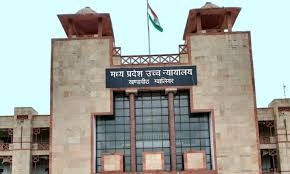Madhya Pradesh High Court: Special Marriage Act Union Between Hindu and Muslim Not Valid Under Muslim Law
By Lokmat English Desk | Updated: May 30, 2024 13:50 IST2024-05-30T13:49:32+5:302024-05-30T13:50:54+5:30
The Madhya Pradesh High Court recently ruled that a marriage between a Muslim man and a Hindu woman is ...

Madhya Pradesh High Court: Special Marriage Act Union Between Hindu and Muslim Not Valid Under Muslim Law
The Madhya Pradesh High Court recently ruled that a marriage between a Muslim man and a Hindu woman is not valid under Mahomedan Law, even if registered under the Special Marriage Act, 1954. This decision came while dismissing a plea from an inter-faith couple seeking police protection to register their marriage.Justice Gurpal Singh Ahluwalia noted that according to Muslim personal law, a marriage between a Muslim man and a Hindu woman is considered an irregular (or fasid) marriage, despite being registered under the Special Marriage Act. He cited that, "As per Mahomedan law, the marriage of a Muslim boy with a girl who is an idolatress or a fire-worshiper, is not a valid marriage. Even if the marriage is registered under the Special Marriage Act, the marriage would be no more a valid marriage and it would be an irregular (fasid) marriage."
The case involved a Hindu woman and a Muslim man who faced opposition from the woman's family. The family feared societal boycott and claimed the woman had taken jewelry from their house before leaving to marry her partner. The couple, intending to marry under the Special Marriage Act, asserted that neither wished to convert to the other's religion. They argued that their inter-religious marriage would be valid under the Special Marriage Act, which should override personal law.
However, the High Court opined that a marriage under the Special Marriage Act cannot be invalidated for non-performance of religious rituals, but it would still be considered illegal if prohibited under personal law. Citing the Supreme Court case Mohammed Salim (D) Through LRs. & Ors. Vs. Shamsudeen (D) Through LRs. & Ors., which dealt with inheritance rights of children from such marriages, the Court concluded that the couple's marriage would be an irregular marriage or a fasid marriage.The Court held that, "Marriage under Special Marriage Act would not legalize the marriage which otherwise is prohibited under personal law. Section 4 of Special Marriage Act provides that if the parties are not within prohibited relationship then only marriage can be performed." Consequently, the Court dismissed the couple's petition, noting their unwillingness to convert or live together without marriage.